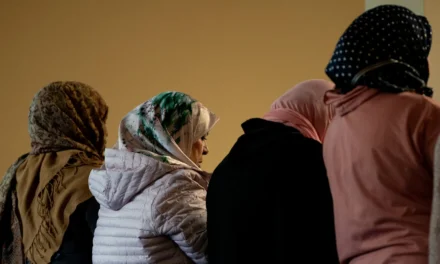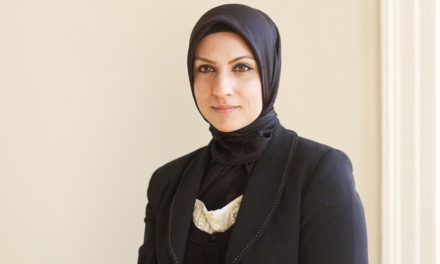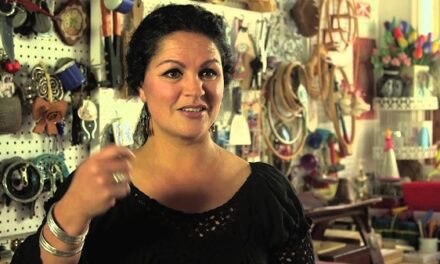Abdul Malik Mujahid for Sound Vision
This Ramadan will very likely begin with the continuing pandemic, and the resulting physical isolation. That means we need to make arrangements now to figure out how we will get the best out of this blessed month in this unique circumstance, especially with our Masjids closed.
-
Get the whole family together to plan
Fasting is a personal act of worship but Ramadan is a great opportunity for regular social get togethers as well. So let the family Shura begin about planning for this unique Ramadan. Maybe you can announce this meeting for next Saturday morning. Make sure everyone in the family participates.
-
Welcoming Ramadan
Put a “Countdown to Ramadan” notice on the fridge. It is most likely that April 23 will be the beginning of Ramadan this year. Let’s bring it to our home. Prophet Muhammad, peace and blessings be upon him, would fast on Mondays and Thursdays, and in the days preceding Ramadan, he would fast more. It is not required for us to do so, but it may help bring Ramadan to our hearts.
-
Designate a Ramadan home Masjid
Many Muslims already have a small area in their homes designated as a Masjid or prayer area. If you don’t, this is one thing to decide in your Shura meeting. Where will it be and who will be responsible for it? In my case, our home does not have a separate space, so our living room has a place for all of the prayer rugs and we keep one prayer rug always in place. Next to that is a shelf holding copies of the Quran.
-
Call the Adhan at home
In preparation for Ramadan, please put up your area’s Salat timings on the fridge. For each of the five daily prayers, someone should be designated to call the Adhan and to lead salat. Please pray together.
-
Decoration
With everyone at home, and some getting bored, others getting worried, why not engage children to start decorating the home for Ramadan. I have a 25-year-old tamarind plant in one corner of our living room. We plan to place small lights on it to bring some life to the living room.

-
Celebrating the Quran
Ramadan is when the Quran was first revealed. As we welcome the month of Ramadan, the month of the Quran, learn how the Quran was revealed and how it was preserved. Maybe this could be a pre-Ramadan online assignment for all Islamic classes. I have traveled to 60 or so countries and have seen copies of the Quran printed in all continents. I actually own a small photocopied portion of the copy of the Quran from Khalifa Uthman ibn Affan’s time, may God be pleased with him. Isn’t it a miracle that this book has stayed the same? No other book is like it.
-
Time for Dua
Ramadan is the month of Dua (supplication to God), but don’t wait for Ramadan to make Dua. Start asking God to lift this misery of the pandemic from us so that we can get to our Masjids, and hug and meet each other. We miss all of that time of connection and closeness.
Pray for those who are saving lives in hospitals; pray for those struggling to live; pray for those who cannot get to a hospital. Each Dua should begin by thanking God for all that we have, then thanking the Prophet through Salawat for connecting us to God Almighty.
Then, we must ask God for His forgiveness for our sins and shortcomings. Following that, we can start asking Him for what we want. All sincere duas are accepted. He listens when we talk. But He decides which way He will accept our Dua. So trust Him. Sometimes we don’t understand His reasoning. That is the reason in Surah al Kahf (chapter 18 of the Quran) He provides a window to His mysteries. You don’t have to pray in Arabic. Talk to Allah in the language you know. He knows all languages including the language of tears.
-
Remember those who are not doing as well as us
Right now, hundreds of thousands of people are walking in India to get to their homes. Some are walking as far as 600 miles. They are poor people who have lost their jobs as the country institutes orders for self-isolation. Two billion people live on a dollar a day. That is not just food, that is everything. We are way better off. Most of these people have no permanent jobs. They earn every day to eat. Now, there is no way for them to eat. In a world where the rich are becoming richer and the poor are becoming poorer, misery is increasing for a whole lot of people. We will not be good Muslims if we don’t carry these people in our hearts, in our Duas, and in our resolve to change the world.
-
Consume less and share more
Ramadan is not about food. It’s about consuming less and sharing more. We must feel the hunger. So plan a healthy menu. Don’t overeat. Fill your plate with less than what you used to eat before Ramadan. Plan on spending less on groceries. And send what you save early enough for those who are hungry. What is your monthly budget for groceries? Can you reduce it by half? But do enjoy samosas and pakoras, some staple Iftar food items, once in a while. Don’t completely abandon those. While at home this Ramadan, we might be moving less, so let’s rely on low calorie intake. I have been following a dollar a day fast now for years. I don’t even feel it after a few days and end up losing about 10 to 13 pounds in Ramadan.
-
The Prophet’s mission: Living a purposeful life
While planning for Ramadan, remember his mission. He was one of the most successful people in the world. His mission and the mission of all of the Prophets sent by God Almighty is mentioned by God in the Quran: to help people establish Qist – peace, justice, fairness, and equity in the society (Quran 57:25). He was successful in doing that. In his last sermon, he assigned that duty to all of us. So while preparing for Ramadan, remember that Salat, Zakat, fasting, and Hajj, are all spiritual tools that connect us to God and prepare us to fulfill the Prophetic mission of making this world a just place for all.














